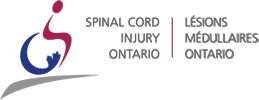Car crashes are among some of the biggest dangers to babies. All babies need a rear-facing car seat for their first ride home from the hospital.
Your baby will use this seat whenever you travel– even the shortest distance– for one year or longer. While babies may use a forward-facing car seat once they are at least one year old and at least 10 kg, it is safest for them to rear-face as long as possible.
Follow these car seat safety tips:
- Look for a car seat with the highest rear-facing weight and length limits once your child has outgrown their first car seat.
- Always install the car seat in the rear seat—the middle position is the safest.
- Read the manufacturer’s instructions for the car seat and follow all age, height and weight specifications.
- Secure the car seat using the Universal Anchorage System (UAS or LATCH), which is now mandatory in all car models. Follow both the car seat and car manual instructions. If the UAS system does not secure the seat adequately, then use the seat belt, as indicated in the car seat instructions.
- Check that the car seat does not move more than 2.5 cm (1 inch) forward or from side to side once it is installed.
- Harness straps should be threaded just at or below your baby’s shoulders. The chest clip should be at armpit level and the harness should fit snugly.
- Tuck a blanket around your baby if needed instead of using a bunting bag.
- Don’t use a car seat that has been in a car crash, even a minor one. It is not safe.
- Never leave your baby unattended in a car, even to run a quick errand.
If you or someone you love has been seriously injured in a car accident, consult a Personal Injury Lawyer.
Source: Canadian Pediatric Society.







